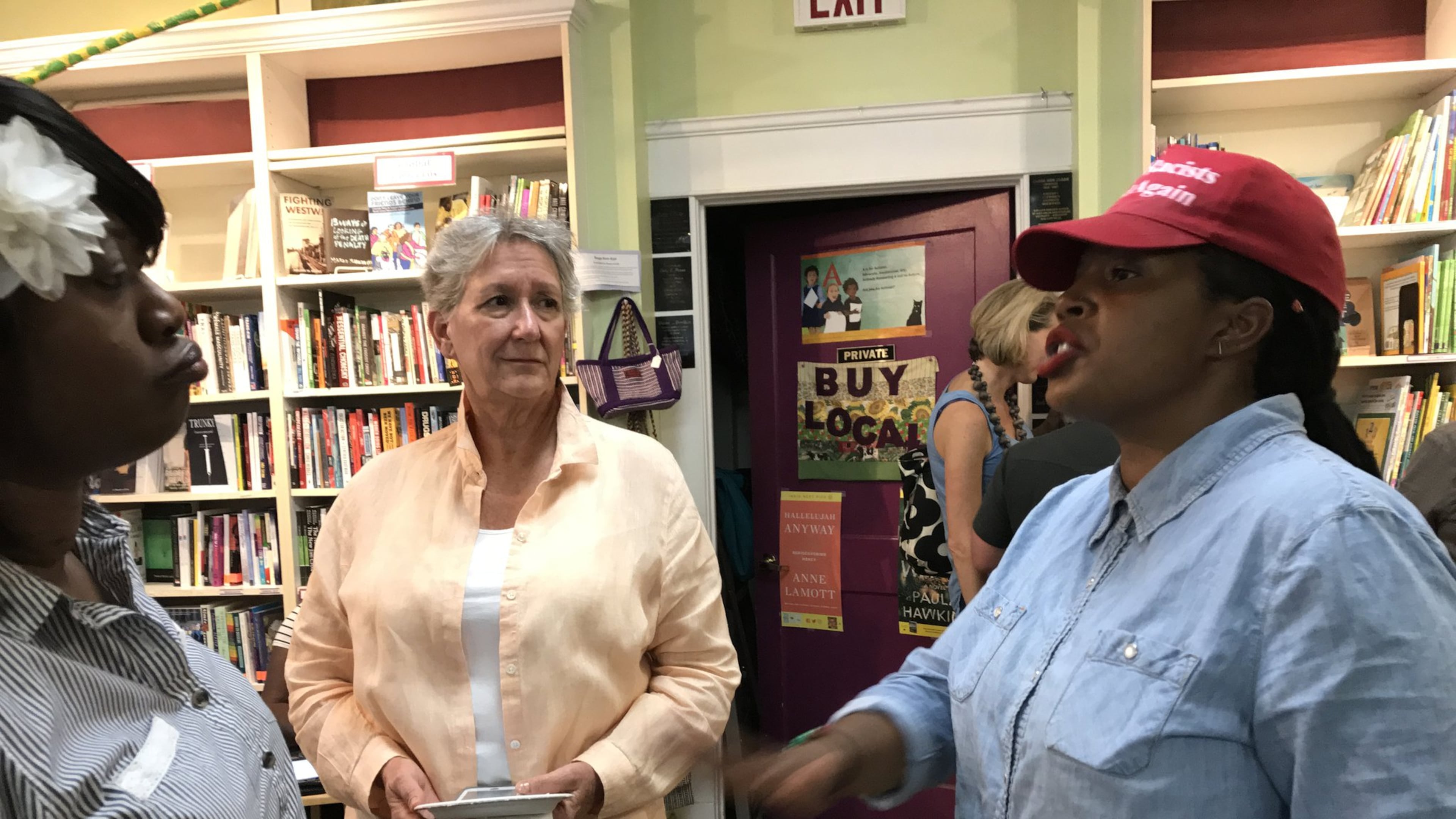“Black Mamas Bailout” seeks to bring black women home for Mother’s Day

Doris Stephenson was 20 years old, pregnant and the mother of a 4-year-old daughter when she was arrested in San Diego on a probation violation.
Stephenson’s first thought was of her young daughter.
“I had just taken my daughter to school that morning,” said Stephenson, whose initial offense was writing bad checks and who lives in Atlanta now.
“My first concern was what would my daughter think? What would happen to her?”
Although, she knew her family would be there to take care of her daughter, she thought about missing out on the simple things like combing her hair and making sure she ate her carrots.
“It was absolutely horrible,” she said. “You worry about those things. I’m still mommy.”
Mary Hooks, co-director of Southerners On New Ground (SONG), a regional LGBTQ nonprofit that works on social justice and economic issues, wants to help other black women who share Stephenson's experience.
The organization recently launched the "Black Mamas Bail Out Day," which is happening in 16 cities this week. Locally, partners include Black Lives Matter Atlanta, SisterSong, Healing Hearts of Families USA Ministries, the National Domestic Workers Alliance, local churches, businesses and individuals.
The initiative is raising money to bail out as many black women as possible in time for a Mother’s Day celebration with their families. The bailouts are scheduled to happen Thursday and Friday, with a Mother’s Day event . It’s not known exactly how many women will be bailed out in Atlanta, although it could be more than 30.
“It’s time for us to divest from police, jails and courts and invest in our communities,” said Hooks, during a fundraiser Tuesday night at Charis Books & More. There have been house party fundraisers, volunteers going to businesses and reaching out to people in the streets.
Related:
Sharma Lewis named UMC bishop in SoutheastShe said many of the women they hope to help don't have the resources to make bail.
“Many of the women being stuffed into cages right now are in for minor, low-level offenses,” she said.
There’s talk about doing a similar project for Father’s Day.
Since the 1980s, there's been a dramatic rise in the number of women in state and federal prisons, according to The Sentencing Project, a Washington, D.C.-based nonprofit whose aim is to reform sentencing policy, address racial disparities and practices and push for alternatives to incarceration.
In 1980, for example, there were 13,206 women in state and federal prison. In 2015, the most recent year for which figures are available, there were more than 111,495, a sevenfold increase. If local jail populations are added, there are now more than 200,000 women behind bars.
Some think that number is much higher.
During the 1980s and early 1990s, the nation was heavily involved in the war on drugs, which took a heavy toll on the black community and women. “Unlike violent offenses which primarily involved men, drug crimes were more likely to involve women as well,” said Marc Mauer, executive director of The Sentencing Project.
In terms of race, black women are twice as likely as white women to be incarcerated,” he said. “In part because of differential processing in the criminal justice system. Because low-income women — of any race — have less access to making bail, less access to high-quality defense attorneys and less access to alternative treatment programs as well as implicit bias in decision-making that is still a feature of the court system in many cases.”
According to the American Civil Liberties Union, black women represent 30 percent of all incarcerated women in the U.S, although they represent 13 percent of the female population generally.
Among female state prisoners, two-thirds are mothers of a minor child.
Bonita Lacy, executive director of Decatur-based Healing Hearts, said a mother’s incarceration can be devastating.
“When you have mothers who are incarcerated, you have children who are destabilized. The children have to go stay with friends or family members or sometimes a neighbor just so they can stay in school … It really destroys the family unit. Lots of times the fathers are not the primary caregivers, the mothers are.”
The Rev. Maressa Pendermon, pastor of Unity Fellowship Church of Greater Atlanta in Decatur and a former prison chaplain, said,“We really don’t need any more churches going into the prison to preach. We need churches that will welcome people back into communities. “That is our mission,” said Pendermon, “to just be a loving community that people can come home to and reconnect with their families and other resources in the community. We want to journey with them to the next step in their lives.”
The “Black Mamas Bail Out” campaign, she said, is simply another way to say “we didn’t forget about you after this arrest.”

